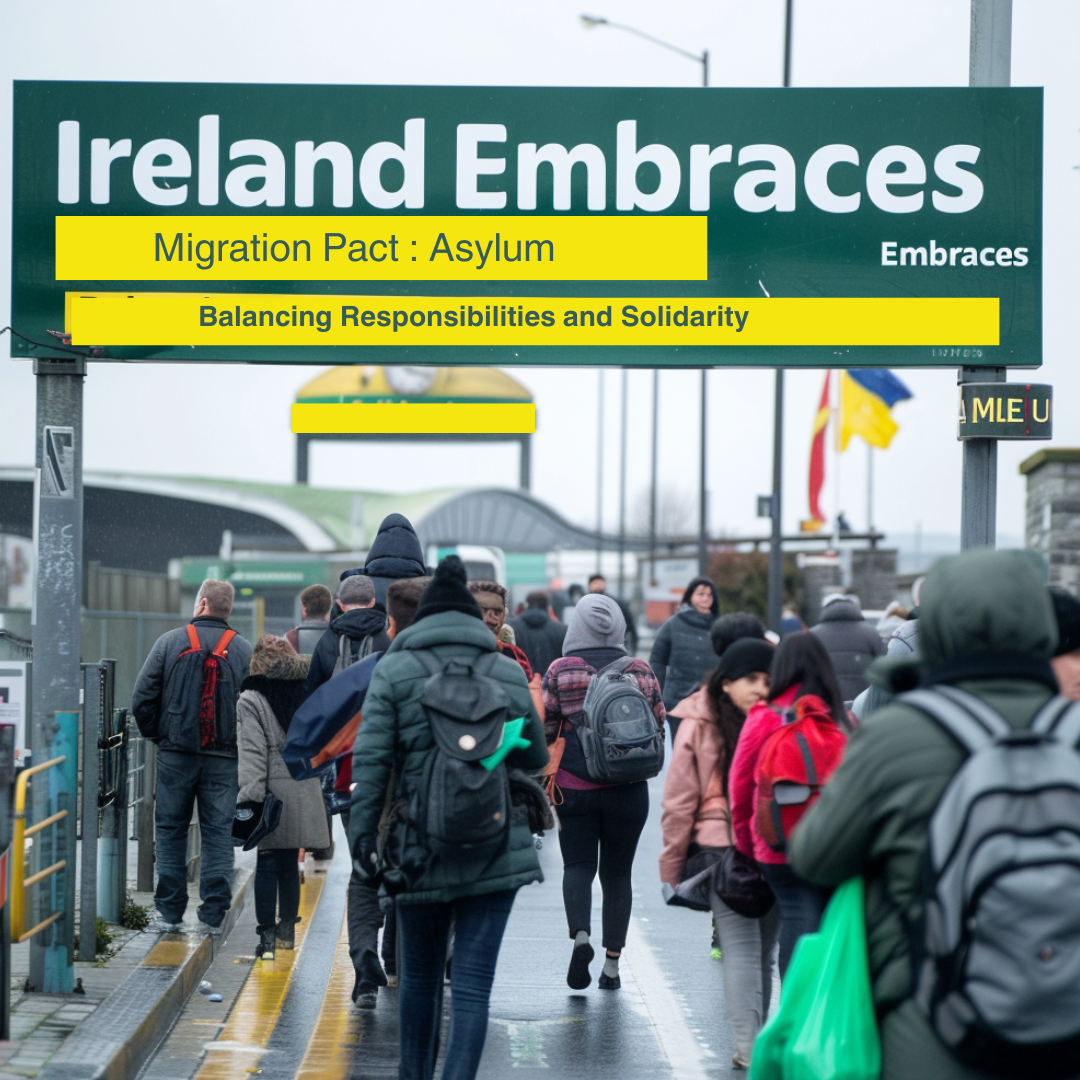
New EU Migration Pact
Ireland is gearing up for significant changes to its migration policies to align with the New EU Migration Pact on Migration and Asylum. This agreement, recently endorsed by both the European Parliament and the European Council, aims to introduce a more balanced, effective, and comprehensive system for managing migration across the EU.
One of the key elements of the pact is the reform of the Dublin III regulation, which traditionally required that the first EU country where an asylum seeker arrives must handle their claim. The new system will implement a ‘mandatory solidarity mechanism’ where all member states will share the responsibility for asylum seekers, either by hosting them or contributing financially. This change is designed to alleviate the pressure on countries like Italy, Greece, and Malta, which have been handling large numbers of arrivals.
For Ireland, this could mean processing more asylum claims, especially from ‘secondary movers’—those who travel to another EU country after arriving in the EU. The pact also introduces streamlined procedures at EU borders, including faster processing of asylum applications and expedited returns for those who do not qualify for asylum. This includes deploying new technologies for identity and security checks at the borders.
The agreement has stirred diverse reactions. While the EU and the Irish government view it as a positive development for managing migration more effectively, it has faced criticism from various quarters. Human rights organizations express concerns that the new measures might not adequately address the challenges facing asylum seekers and could lead to increased suffering. On the other hand, some political groups are critical of the pact, fearing it might lead to higher numbers of asylum seekers in Ireland.
As the EU moves forward with implementing these rules, Ireland will need to decide how to integrate these changes into its national law, with a program of legislation expected to replace the current International Protection Act by 2026.





